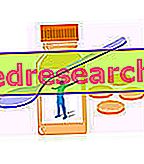Definition
Tics are gestures, vocal expressions or movements, involuntary, sudden, rapid, recurrent and stereotyped (ie always reproduced in the same way). The mechanisms underlying these manifestations are still unknown, but neurological implications have been hypothesized, mainly related to the cerebral ganglia of the base and to the motor cortex.
Repetitive words or gestures, such as squinting, bending the head to the side, clearing the throat or touching the nose, occur almost unconsciously, without a specific purpose; however, tics are typically preceded by a premonitory impulse or a feeling of tension. Furthermore, unlike tremors, dyskinesias and myoclonias, tics can be controlled voluntarily for short periods of time.
Stress, emotion, anxiety and fatigue can exacerbate these manifestations. Tics do not occur, instead, during sleep.
Motor and vocal tics can be classified as simple or complex.
Simple tics often begin during childhood or later as nervous attitudes. They involve only one or a few muscles: the most common simple tics include winking, grimacing of the face and coughing.
The complex tics, on the other hand, manifest themselves as a veritable gesture of the limbs or the head, or as repetition of words or phrases out of context, sometimes vulgar (coprolalia).
Tics occur in a wide variety of disorders. The presence of multiple tics, both motor and vocal, is found in people with Tourette's syndrome. Furthermore, the symptom may be associated with an obsessive-compulsive disorder and some infections.
Tics can also be the consequence of encephalitis, Huntington's disease, primary dystonia, neuroacantocytosis, Hallervorden-Spatz disease, stroke and head trauma. Sometimes, they are induced by toxins, drugs or some drugs (eg methylphenidate, cocaine and amphetamines).
With age, most tics disappear or are attenuated. Usually, no treatment is required.
Possible Causes * of Tic
- Autism
- Encephalitis
- Stroke
- Carbon monoxide intoxication
- Huntington's disease
- Asperger syndrome
- Tourette syndrome



